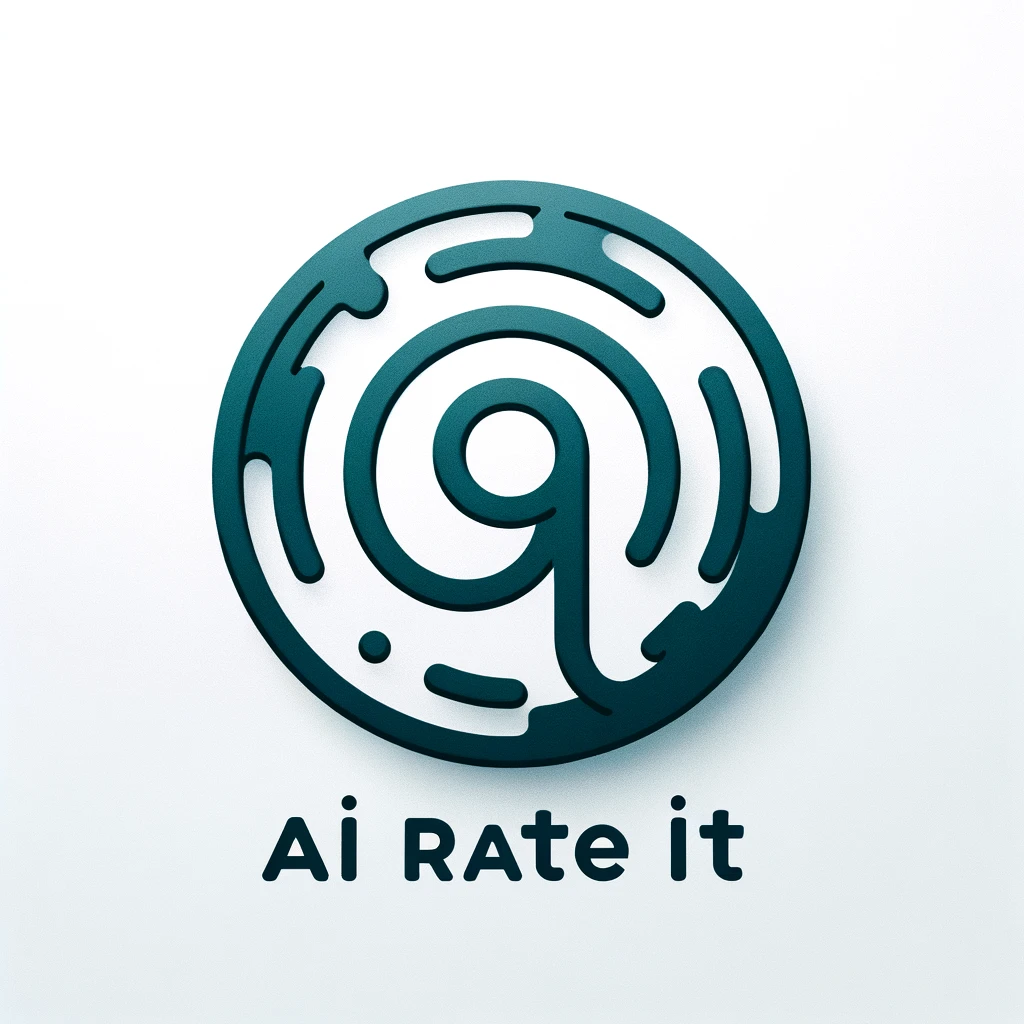Imagine a world where customer acquisition becomes easier, more efficient, and personalized. A world where businesses can effortlessly attract new customers and achieve higher conversion rates. Well, the integration of AI software into CRM systems brings us one step closer to this reality. By harnessing the power of artificial intelligence, businesses can now optimize their customer relationship management systems to enhance customer acquisition. In this article, we will explore the various ways in which AI software can be seamlessly integrated into CRM systems, revolutionizing the way businesses attract and engage with their target audience. Get ready to unlock a new realm of possibilities as we delve into the realm of AI-driven customer acquisition.
Understanding CRM systems
Definition of CRM systems
CRM, which stands for Customer Relationship Management, refers to a set of tools, technologies, and strategies that organizations use to manage and analyze customer interactions and data throughout the customer lifecycle. These systems enable businesses to track and record customer interactions, automate various processes, and deliver personalized experiences to enhance customer satisfaction and drive revenue growth.
Purpose of CRM systems
The purpose of CRM systems is to streamline customer-centric processes and foster strong relationships with existing and potential customers. These systems enable businesses to centralize customer data, providing a holistic view of customer interactions across various touchpoints. By understanding customer preferences, behaviors, and needs, companies can tailor their marketing, sales, and customer service efforts to improve customer acquisition and retention rates.
Benefits of using CRM systems
CRM systems offer numerous benefits for businesses, especially when it comes to customer acquisition. Some of the key advantages include:
-
Improved customer insights: CRM systems provide a comprehensive view of customer data, including demographics, purchase history, and interaction records. This allows businesses to gain valuable insights into customer behavior and preferences, enabling them to target potential customers more effectively.
-
Enhanced lead management: CRM systems allow for efficient lead tracking, scoring, and qualification, enabling sales teams to prioritize leads and focus their efforts on the most promising opportunities. This improves lead conversion rates and boosts customer acquisition efforts.
-
Personalized customer experiences: By leveraging CRM systems, businesses can deliver personalized experiences to customers at every stage of their journey. By understanding individual preferences and tailoring interactions accordingly, companies can build stronger relationships and increase the likelihood of customer acquisition and loyalty.
-
Streamlined processes: CRM systems automate various tasks and processes, such as data entry, follow-ups, and reporting. This saves time and improves efficiency, enabling sales and marketing teams to focus on building relationships and acquiring new customers.
Introduction to AI software
Definition of AI software
AI, which stands for Artificial Intelligence, refers to the simulation of human intelligence in machines that are programmed to think and learn like humans. AI software encompasses a range of technologies, including machine learning, natural language processing, and computer vision, which enable computers to perform tasks that typically require human intelligence.
Applications of AI software in business
AI software has numerous applications in the business world. Some of the common applications include:
-
Customer service: AI-powered chatbots can provide real-time assistance to customers, resolving their queries and guiding them through various processes. This improves customer satisfaction and reduces the workload of human customer service agents.
-
Sales and marketing: AI software can automate lead scoring, forecasting, and follow-up processes, enabling sales teams to prioritize their efforts and optimize their strategies. AI algorithms can also analyze customer data to provide insights and recommendations for targeted marketing campaigns.
-
Data analysis: AI software can analyze large volumes of data to identify patterns, trends, and correlations. This allows businesses to gain valuable insights into customer behavior, market trends, and business operations, leading to more informed decision-making.
Benefits of using AI software
Integrating AI software into CRM systems offers several benefits for businesses in terms of customer acquisition. Here are some key advantages:
-
Improved lead generation: AI software can analyze vast amounts of data to identify potential customers, allowing businesses to target their marketing efforts more accurately. By leveraging AI algorithms, businesses can identify patterns and preferences that may indicate a higher likelihood of conversion.
-
Enhanced customer interactions: With AI software, businesses can personalize customer interactions at scale. AI-powered chatbots can engage with customers in a conversational manner, providing relevant information and assistance. This improves the customer experience and increases the chances of acquiring new customers.
-
Efficient sales processes: AI software can automate various sales processes, such as lead scoring, qualification, and follow-ups. This saves time for sales teams, enabling them to focus on building relationships and closing deals. AI algorithms can also analyze data to predict future sales trends and optimize sales strategies.
-
Improved customer analytics: AI software can analyze customer data and derive valuable insights about customer preferences, behaviors, and needs. This enables businesses to segment their customer base more effectively and tailor their marketing and sales efforts accordingly. By understanding customers better, businesses can acquire new customers more efficiently.

Integration of AI software into CRM systems
Challenges of integrating AI software into CRM systems
Integrating AI software into CRM systems presents some challenges that businesses need to overcome. Some of the key challenges include:
-
Data integration: AI software relies on large amounts of data to train and operate effectively. Integrating AI into CRM systems requires businesses to ensure that data from various sources, such as customer interactions, demographics, and purchase history, can be seamlessly integrated and accessed by AI algorithms.
-
Scalability: CRM systems typically handle a vast amount of customer data and interactions. Integrating AI software into CRM systems requires businesses to ensure that the infrastructure and resources can handle the increased workload. This includes considerations such as computing power, storage capacity, and network bandwidth.
-
User adoption: Introducing new AI software into existing CRM systems can face resistance from employees who may be unfamiliar or apprehensive about using AI-powered tools. Businesses need to invest in user training and change management initiatives to ensure smooth adoption and maximize the benefits of integrating AI.
Possible solutions and strategies for integration
To overcome the challenges of integrating AI software into CRM systems, businesses can employ various strategies and solutions. Some of the possible approaches include:
-
Data integration platforms: Implementing data integration platforms that enable seamless data exchange between CRM systems and AI software can facilitate the integration process. These platforms provide connectors and APIs that simplify the process of connecting and exchanging data between systems.
-
Cloud-based solutions: Leveraging cloud-based AI software can alleviate scalability issues by providing on-demand computing resources. Cloud platforms offer the flexibility to scale resources up or down based on demand, ensuring that the CRM system can handle the increased workload when integrating AI software.
-
Change management and training: Investing in comprehensive change management initiatives and user training programs is crucial for successful integration. This includes educating employees about the benefits of AI software, providing training on how to use AI-powered tools, and promoting a culture of innovation and adaptability.
Key considerations when integrating AI software into CRM
When integrating AI software into CRM systems, businesses must consider several key factors to ensure a successful implementation. Some of the important considerations include:
-
Data privacy and security: AI software relies on customer data to provide personalized experiences and insights. Businesses must prioritize data privacy and security by implementing robust data protection measures and ensuring compliance with relevant regulations, such as GDPR (General Data Protection Regulation).
-
Ethical considerations: AI software has the potential to make automated decisions that may have significant impacts on individuals. Businesses need to establish ethical guidelines and ensure that AI algorithms operate in a fair and responsible manner, mitigating biases and avoiding potentially harmful consequences.
-
Seamless user experience: Integration should focus on providing a seamless user experience for employees using the CRM system. AI software should be seamlessly integrated into existing workflows and interfaces, minimizing disruptions and ensuring that users can easily access and utilize AI-powered features.
Enhancing customer acquisition with AI software
Identifying potential customers using AI
AI software can significantly enhance customer acquisition by identifying potential customers more accurately and efficiently. By analyzing large volumes of data, including demographics, online behavior, and purchase history, AI algorithms can detect patterns and characteristics that indicate a higher likelihood of conversion. This enables businesses to target their marketing efforts more precisely and allocate resources effectively to acquire new customers.
Personalizing customer interactions with AI
Personalization is a key driver of customer acquisition, and AI software plays a crucial role in delivering personalized experiences at scale. By leveraging AI algorithms, businesses can analyze customer data to understand individual preferences, behaviors, and needs. AI-powered chatbots can engage with customers in a conversational manner, tailoring interactions and providing relevant information. This personalized approach increases customer satisfaction and improves the chances of acquiring new customers.
Improving lead generation through AI
Lead generation is a critical aspect of customer acquisition, and AI software can significantly enhance this process. AI algorithms can analyze vast amounts of data to identify potential leads with a higher likelihood of conversion. By understanding customer behavior, buying patterns, and preferences, businesses can develop targeted marketing campaigns that resonate with potential customers. This improves lead generation efforts and increases the effectiveness of customer acquisition strategies.
Utilizing AI-driven customer analytics
Collecting and analyzing customer data using AI
AI software can revolutionize the way businesses collect and analyze customer data by automating and streamlining the process. AI algorithms can gather data from various sources, such as customer interactions, social media, and website visits, and identify meaningful patterns and insights. This enables businesses to gain a deeper understanding of customer behaviors, preferences, and needs, leading to more effective customer acquisition strategies.
Leveraging AI algorithms for customer insights
AI algorithms can uncover valuable insights from customer data that would be difficult, if not impossible, for humans to discover manually. These algorithms can identify correlations, patterns, and trends in vast amounts of data, enabling businesses to make data-driven decisions for customer acquisition. By leveraging AI algorithms, businesses can gain a competitive edge by understanding their customers better and tailoring their acquisition strategies accordingly.
Optimizing customer segmentation and targeting
customer segmentation is crucial for effective customer acquisition, and AI software can greatly enhance this process. AI algorithms can segment customers based on various attributes, such as demographics, behaviors, and preferences, allowing businesses to target specific customer segments with personalized marketing messages. This improves the efficiency and effectiveness of customer acquisition efforts, as businesses can tailor their strategies to meet the unique needs and preferences of different customer segments.
Streamlining sales processes with AI-powered automation
Automating lead scoring and qualification with AI
Lead scoring and qualification are time-consuming tasks that can be efficiently automated using AI software. AI algorithms can analyze various factors, such as customer attributes, behaviors, and engagement levels, to assign a score to each lead. This score determines the likelihood of conversion, allowing sales teams to prioritize their efforts and focus on leads with a higher potential for acquisition. By automating lead scoring and qualification, businesses can optimize their sales processes and increase the efficiency of customer acquisition.
Enhancing sales forecasting using AI algorithms
Accurate sales forecasting is essential for effective customer acquisition, and AI algorithms can improve the accuracy and reliability of forecasts. By analyzing historical sales data, customer interactions, and market trends, AI software can predict future sales performance with greater precision. This enables businesses to adjust their customer acquisition strategies in advance, allocate resources effectively, and make informed decisions to maximize revenue growth.
Automating follow-ups and customer communication
Follow-ups and customer communication play a vital role in customer acquisition, and AI-powered automation can streamline these processes. AI software can automate follow-up emails, reminders, and notifications, ensuring timely and consistent communication with potential customers. This saves time for sales teams, allowing them to focus on building relationships and closing deals. Automated communication also ensures that no potential leads fall through the cracks, maximizing the chances of successful customer acquisition.

Implementing AI chatbots for customer support
Benefits of AI chatbots in customer support
AI-powered chatbots offer numerous benefits in the realm of customer support, enhancing the customer acquisition process. Some of the key advantages include:
-
24/7 availability: AI chatbots can provide round-the-clock customer support, ensuring that potential customers can get assistance and information at any time. This availability increases customer satisfaction and improves the chances of acquiring new customers.
-
Faster response times: AI chatbots can provide instant responses to customer queries, reducing wait times and improving overall customer experience. Prompt and accurate responses contribute to a positive impression of the business, increasing the likelihood of customer acquisition.
-
Cost savings: AI chatbots can handle a large volume of customer queries simultaneously, eliminating the need for human customer service agents to handle routine requests. This reduces costs for businesses and allows human agents to focus on more complex tasks and customer interactions.
Integrating AI chatbots into CRM systems
Integrating AI chatbots into CRM systems enhances the customer acquisition process by providing seamless customer support across various channels. CRM systems can capture and store customer interactions with AI chatbots, ensuring a comprehensive view of customer communication history. This enables businesses to analyze customer preferences and behaviors for more effective customer acquisition strategies. Integration also allows for personalized responses and tailored interactions based on customer data stored in CRM systems.
Providing real-time assistance and resolving customer queries
AI chatbots can provide real-time assistance to potential customers, resolving their queries and guiding them through various processes. By leveraging natural language processing and machine learning algorithms, AI chatbots can understand customer intent and provide relevant and accurate responses. Real-time assistance ensures a positive customer experience, increasing the chances of successful customer acquisition by providing timely and helpful support.
Enhancing CRM system security with AI
Identifying and preventing data breaches using AI
AI software can play a crucial role in enhancing the security of CRM systems by identifying and preventing data breaches. AI algorithms can analyze network traffic, user behavior, and access logs to detect suspicious activity and potential security threats. By leveraging AI-powered security solutions, businesses can proactively identify vulnerabilities and take preventive measures to protect customer data and secure their CRM systems.
Evaluating user access and permissions with AI
AI software can automate the process of evaluating user access and permissions within CRM systems, enhancing security and reducing the risk of unauthorized access. AI algorithms can continuously monitor user behavior, access patterns, and privileges, comparing them against predefined rules and policies. This enables businesses to detect anomalies and potential security breaches, ensuring that only authorized individuals have access to sensitive customer data.
Detecting and mitigating potential security threats
AI software can detect and mitigate potential security threats by continuously monitoring and analyzing system data. AI algorithms can identify patterns and anomalies that may indicate a security breach or potential threat, such as unauthorized access attempts or unusual network traffic. Early detection allows businesses to take immediate action, such as blocking suspicious IP addresses or notifying security teams, to prevent security incidents and protect the integrity of customer data stored in CRM systems.
Training and adapting AI models
Utilizing machine learning algorithms for AI training
AI models rely on machine learning algorithms to learn and improve over time. To ensure accurate and effective customer acquisition processes, businesses need to train AI models using relevant data. Machine learning algorithms can analyze historical customer data, such as past customer acquisition patterns, to identify insights and patterns that contribute to successful acquisition efforts. Training AI models results in enhanced accuracy and performance, enabling businesses to make informed decisions and optimize their customer acquisition strategies.
Ensuring AI models remain up-to-date and accurate
AI models require regular updates to ensure they remain accurate and effective for customer acquisition purposes. Businesses need to continuously evaluate and monitor the performance of AI models, incorporating new data and algorithms as necessary. This includes monitoring changes in customer behavior, market trends, and business dynamics to ensure that AI models consistently provide reliable insights and recommendations for customer acquisition efforts.
Incorporating feedback and performance monitoring
Feedback and performance monitoring are essential aspects of training and adapting AI models for customer acquisition. Businesses need to collect feedback from users and stakeholders to identify areas for improvement and ensure that AI models are aligning with business goals. Performance monitoring involves tracking metrics and key performance indicators to evaluate the effectiveness and impact of AI models on customer acquisition. By incorporating feedback and continuously monitoring performance, businesses can refine and enhance AI models for better customer acquisition outcomes.
Conclusion
Integrating AI software into CRM systems can significantly enhance customer acquisition efforts for businesses. By leveraging AI algorithms, businesses can identify potential customers more accurately, personalize customer interactions at scale, and streamline various processes. AI-driven customer analytics enable businesses to gather valuable insights and optimize customer segmentation and targeting. The automation of sales processes and the implementation of AI chatbots for customer support further contribute to successful customer acquisition. Additionally, by enhancing CRM system security and continuously training and adapting AI models, businesses can ensure the effectiveness and accuracy of their customer acquisition strategies. By embracing AI software within CRM systems, businesses can gain a competitive edge, improve customer acquisition rates, and drive sustainable growth.





